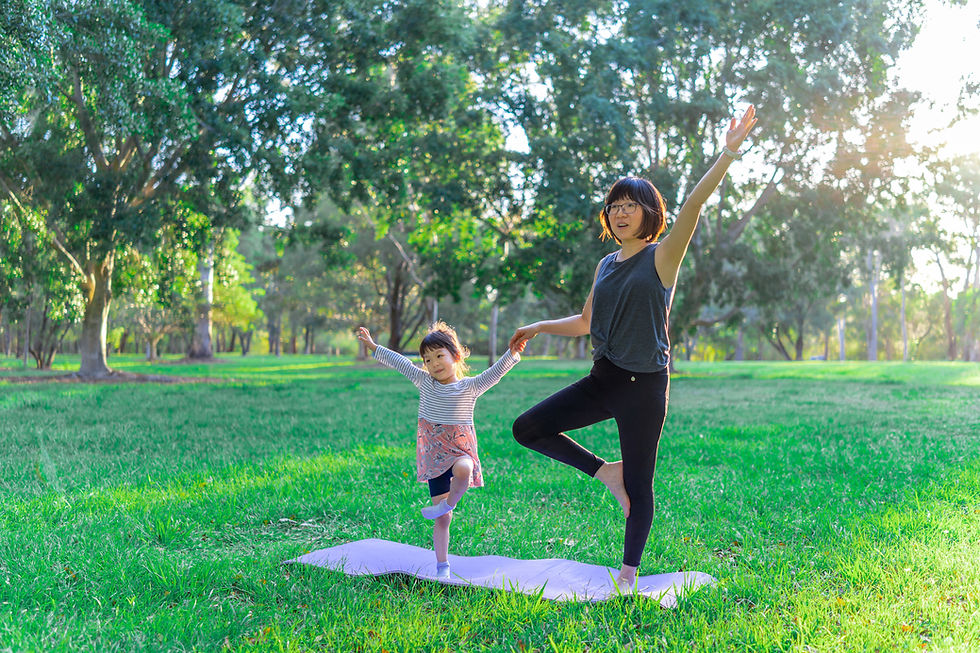Prehab: The Key to Faster Recovery After Joint Surgery
- melaniemovewell
- Mar 2
- 4 min read
Updated: Mar 4

If you’re preparing for joint surgery, whether it’s a tendon or ligament repair, like a rotator cuff, or a joint replacement, what you do before surgery can significantly impact your recovery. Prehabilitation, or “prehab,” is a proactive approach that strengthens your body, improves mobility, and optimizes your overall health before surgery. Research shows that prehab can lead to faster recovery, less pain, and better long-term outcomes.
What is Prehab?
Prehab is a structured exercise and lifestyle program designed to prepare your body for surgery. While rehab focuses on recovery after surgery, prehab works before surgery to strengthen muscles, improve flexibility, and enhance overall resilience. Think of it as setting the foundation for a smoother rehabilitation process.
By improving strength, mobility, and overall fitness before surgery, you’ll be in a better position to recover quickly and regain function.
Why Prehab Matters for Joint Surgery
Prehab isn’t just about exercising, it’s about preparing your body holistically so that you recover faster and more effectively. Here’s how it helps:
Reduces Muscle Atrophy: Surgery and post-op inactivity can lead to muscle loss. Strengthening the surrounding muscles before surgery helps preserve strength and function.
Improves Mobility & Flexibility: Keeping the joint moving safely before surgery can help maintain range of motion, making post-op rehab easier.
Enhances Circulation & Tissue Health: Good circulation promotes healing and reduces the risk of complications like blood clots.
Supports Mental & Physical Resilience: Going into surgery feeling strong and prepared can reduce stress and improve confidence in the recovery process.
The 3 Pillars of Prehab
1. Movement & Strength Training
Recovery doesn’t just happen in the gym, it starts with daily habits.
Sleep: Deep sleep is when your body repairs and strengthens tissues. Aim for 7-9 hours per night to optimize recovery.
Stress Management: Chronic stress increases inflammation and slows healing. Techniques like breathing exercises, meditation, getting outside or simply taking breaks can help.
Hydration: Staying well-hydrated supports circulation, joint health, and healing.
2. Lifestyle & Recovery Strategies
Recovery doesn’t just happen in the gym, it starts with daily habits.
Sleep: Deep sleep is when your body repairs and strengthens tissues. Aim for 7-9 hours per night to optimize recovery.
Stress Management: Chronic stress increases inflammation and slows healing. Techniques like breathing exercises, meditation, getting outside or simply taking breaks can help.
Hydration: Staying well-hydrated supports circulation, joint health, and healing.
3. Nutrition for Healing
Proper nutrition is a critical part of prehab. What you eat before surgery can set the stage for a faster recovery.
Protein : Essential for maintaining muscle mass and supporting tissue repair. Aim for at least 1.2-1.6g/kg of body weight.
Anti-Inflammatory Foods: Reduce inflammation and support healing with omega-3s (fatty fish, flaxseeds), berries, turmeric, and leafy greens.
Fibre & Gut Health: Surgery and pain medications can slow digestion, leading to constipation. Increase fibre intake with vegetables, whole grains, and fermented foods to support gut health.
How Prehab Leads to Faster Recovery
A structured prehab program doesn’t just help before surgery, it makes recovery easier and more efficient. Here’s what the research shows:
Patients who do prehab regain function faster and require less post-op physical therapy.
Prehab reduces pain perception and may lower reliance on pain medications.
Stronger muscles and better mobility before surgery mean an easier rehab process.
It can lead to shorter hospital stays and a quicker return to daily activities.
Getting Started with Prehab
If you’re preparing for joint surgery, now is the time to start prehab.
Work with a professional to create a structured plan tailored to your needs.
Start at least 4-6 weeks before surgery (earlier if possible).
Join an Online Prehab Program: I provide customized online prehab programs that you can do in the comfort of your home with the equipment you have. Plus, I offer support to help fit it into your lifestyle and routines, making it easier to stay consistent.
Final Thoughts
Surgery is a big event, but preparing your body beforehand can make all the difference. Prehab isn’t just about exercise, it’s about setting yourself up for the best possible recovery through movement, nutrition, and lifestyle habits. Investing time in prehab now can mean getting back to the activities you love faster and with less pain.
If you’re looking for a prehab plan that works for you, I can help. Let’s set you up for a smoother recovery!
Ready to take control of your health and start living a more active life. Contact me today to learn more! Get started today
Want more tips on movement, injury prevention, and staying active as you age? Sign up for my monthly Move Well Newsletter and get evidence-based advice straight to your inbox.
References:
National Academy of Sports Medicine. (2021, August 26). Prehabilitation guide: How to prepare your body for surgery. National Academy of Sports Medicine. https://blog.nasm.org/prehabilitation-guide
Yale Medicine. (2020, October 7). Building strength before surgery. Yale Medicine. https://medicine.yale.edu/news-article/building-strength-before-surgery/
Prehabilitation Canada. (n.d.). Prehabilitation for practitioners. Prehabilitation Canada. https://prehabilitation.ca/practitioner-information/#1601308927813-8b937e45-6ef1
Disclaimer:
This site offers health, fitness and nutritional information and is designed for educational purposes only. You should not rely on this information as a substitute for, nor does it replace, professional medical advice, diagnosis, or treatment. If you have any concerns or questions about your health, you should always consult with a physician or other health-care professional. Do not disregard, avoid or delay obtaining medical or health related advice from your health-care professional because of something you may have read on this site. The use of any information provided on this site is solely at your own risk.
.png)



Comments